Articolo tratto da "Vulture"
Penn Badgley slaloms up to me in Tompkins Square Park on a skateboard, wearing a gray sweatshirt and red sneakers, recognizable but unrecognized as the disaffected starlet-boy of the rococo teen soap Gossip Girl, which concluded its sixth and final season in December. He wanted to meet here because Jeff Buckley—the gorgeously warbling nineties alt-folk singer Badgley plays in a murky, heartfelt movie that premiered last week at the Tribeca Film Festival—used to perform for tips nearby at Sin-é, a long-gone café at 122 St. Marks Place, beyond the edge of the park. As we walk, Badgley, carrying his board, shows me the spot where a well-known-to-his-fans photo of Buckley was taken, contemplating his own reflection in a puddle, in 1993. Buckley didn’t live much longer: He was 30 when he drowned during an ill-advised, at least somewhat suicidal dip in Memphis’s Wolf River in 1997. The film, Greetings From Tim Buckley, is named for Jeff’s father, another mythic folksinger who also died young, of a heroin overdose, in 1975. Neither father nor son got to be much older than Badgley is now (26), so as far as bohemian tragedies go, the Buckleys are a doubly sad tale. And, for a CW star keen to be seen more as an artist and heir to the counterculture, doubly irresistible.
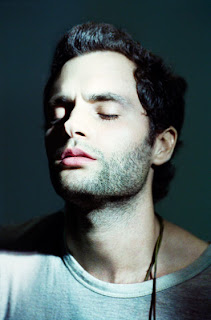 Badgley got the role in Gossip Girl in 2006, when he was 19, and has been trying to distance himself from it ever since. He likes to tell reporters about how he turned down the part at first—he was worried that he’d never get out of it. But the producers couldn’t find a better person to inhabit Dan Humphrey, the son of a run-aground nineties rock star who didn’t drown or OD but instead lived on in a loft in Brooklyn, ran an art gallery, and sent his two kids to an Upper East Side private school. Compared to his fellow students—super-styled, sexed-up, and scheming—Badgley’s Dan was the moralistic outsider, or what passes for one on a show produced by the guy who created The O.C. He wore an Army jacket over his school tie in the first season and was known as “lonelyboy.”
Badgley got the role in Gossip Girl in 2006, when he was 19, and has been trying to distance himself from it ever since. He likes to tell reporters about how he turned down the part at first—he was worried that he’d never get out of it. But the producers couldn’t find a better person to inhabit Dan Humphrey, the son of a run-aground nineties rock star who didn’t drown or OD but instead lived on in a loft in Brooklyn, ran an art gallery, and sent his two kids to an Upper East Side private school. Compared to his fellow students—super-styled, sexed-up, and scheming—Badgley’s Dan was the moralistic outsider, or what passes for one on a show produced by the guy who created The O.C. He wore an Army jacket over his school tie in the first season and was known as “lonelyboy.” What bothered Badgley most about the role was not the predictability of the character, or how phantasmagorically plotted the whole thing became as season whirled into season, but that many viewers thought he was, somehow, actually Dan—a conflation the show and its state-of-the-art publicity apparatus encouraged, of course. (As did this magazine; from 2008: “Penn … for the record is pretty much exactly like Dan, all cheekbones and philosophical musings.”) But truth be told, Badgley did his part, too, getting involved, in real life, with Blake Lively, who played Dan’s onscreen “It” girl girlfriend, Serena van der Woodsen. And while Lively moved seamlessly into becoming Serena—she’s as convincing a luxury product as the buttery bag she clutches in those Chanel ads—Badgley couldn’t put a cork in his droll grousing. “Gossip Girl is certainly not my driving, passionate force in life, obviously,” he told reporters. He wanted to be an “artist,” he said, but found himself “on a fucking TV show” instead, and wondered, often enough, What the fuck am I doing?
In a world of anodyne actors programmed for sunny evasion, his self-alienation is appealing, if maybe not entirely relatable, coming from such a pretty face. It’s a tricky business to try to be a sincere celebrity, skeptical of one’s own celebrity, maybe even the idea of celebrity, while also not coming across as bitter or self-defeated. And, okay, it’s all in keeping with the character he played, who wrote a book about his milieu and, in the final episode, turned out to be the show’s snarky blogger-narrator posting about his privileged fellow students (in voice-overs read, in what a more finicky critic might call a “continuity error,” by Kristen Bell).
 But whereas Dan was accepted into the Gossip Girl ruling-class “family” in the end, Badgley is glad to be escaping from the Upper East Side. He’s dating a different kind of New York aristocrat, Zoë Kravitz, the singing and acting and jewelry-designing daughter of nineties rocker Lenny Kravitz. (“We’d known each other for years, but not well,” he explains. “I think we’d both assumed the worst of each other, you know what I mean?” Even famous people, apparently, can’t see past each other’s fame.) He took an apprentice-like role in Margin Call, a portentous high-finance-in-crisis drama starring Jeremy Irons, Paul Bettany, and Kevin Spacey at their most robustly Shakespearean (and has a grim-sounding, apocalyptic indie drama called Parts Per Billion coming up next). He played some music with some friends in a Williamsburg band called Reputante and joined a retreat to the mountains of Colombia to meet local shamans. And he was photographed at Zuccotti Park holding up a sign that read BRING BACK THE GLASS-STEAGALL ACT (before hoisting it to the park, he’d Googled the law to make sure the message on the sign was “positive”). With some socially adept friends, he held a series of Occupy teach-ins at the Bowery Hotel, and even wore a WE ARE THE 99% T-shirt, standing next to Mayor Bloomberg while being photographed on the Gossip Girl set. “I found that the hardest thing that I could do was tell some of the people closest in my life that I was, like, you know, associating with Occupy. The people were like, ‘Now, what is that? You have money!’ And it’s like, ‘What the fuck are you talking about? That has nothing to do with it …’ ” He trails off, distracted by Lively’s image on top of a passing cab in an ad for People’s StyleWatch.
But whereas Dan was accepted into the Gossip Girl ruling-class “family” in the end, Badgley is glad to be escaping from the Upper East Side. He’s dating a different kind of New York aristocrat, Zoë Kravitz, the singing and acting and jewelry-designing daughter of nineties rocker Lenny Kravitz. (“We’d known each other for years, but not well,” he explains. “I think we’d both assumed the worst of each other, you know what I mean?” Even famous people, apparently, can’t see past each other’s fame.) He took an apprentice-like role in Margin Call, a portentous high-finance-in-crisis drama starring Jeremy Irons, Paul Bettany, and Kevin Spacey at their most robustly Shakespearean (and has a grim-sounding, apocalyptic indie drama called Parts Per Billion coming up next). He played some music with some friends in a Williamsburg band called Reputante and joined a retreat to the mountains of Colombia to meet local shamans. And he was photographed at Zuccotti Park holding up a sign that read BRING BACK THE GLASS-STEAGALL ACT (before hoisting it to the park, he’d Googled the law to make sure the message on the sign was “positive”). With some socially adept friends, he held a series of Occupy teach-ins at the Bowery Hotel, and even wore a WE ARE THE 99% T-shirt, standing next to Mayor Bloomberg while being photographed on the Gossip Girl set. “I found that the hardest thing that I could do was tell some of the people closest in my life that I was, like, you know, associating with Occupy. The people were like, ‘Now, what is that? You have money!’ And it’s like, ‘What the fuck are you talking about? That has nothing to do with it …’ ” He trails off, distracted by Lively’s image on top of a passing cab in an ad for People’s StyleWatch.“Oh, I’m sorry,” he says. “It’s just funny that that rolled along just as I was saying that.”
The next time I see him is weeks later, and he’s wearing the same sweatshirt and sneakers. He and Kravitz had been away in the wilds of Brazil, and he’s invited me over to their sunny, casual brick-walled Williamsburg loft: red sofa and chair, an array of friendship bracelets on the side table, a big bottle of Jack Daniel’s on the bar. No, the big Indian chief headdress is not his, it’s hers, and she wore it at Burning Man. He makes me Yogi tea—“The rhythm of life is when you experience your own body mind and soul” reads the tag—and we talk about the books on the table he intends to read (Haruki Murakami’s 1Q84), has started reading (Rebecca Skloot’s The Immortal Life of Henrietta Lacks), or that are just “decorative” (a pleasing old edition of Molière that Kravitz picked up from the concrete block in the building’s lobby Badgley calls the “offering stone”).
They don’t own this place, only rent it, he explains, as he digs into a bag of raw granola, a surprisingly tasty snack habit left over from when he was eating only raw food while trying to lose weight to prepare for the Buckley role. “I remember in my head thinking, I’m never going to be able to get as thin as him, so I’m just going to stop working out,” says Badgley, munching. “I’m just going to stop getting in the sun. I’m just going to try to get as thin and pale as possible.” He describes raw food as “rocket fuel.” There’s a yoga mat rolled up by a chair.
 Seven years after the Gossip Girl adventure began, he’s living the way young boho types are often depicted living in television shows, which is something he can actually afford perhaps only because he was actually on a television show. The apartment is full of boxes of records (Louis Armstrong, Stevie Wonder, Violent Femmes), multiple guitars, one ukulele, and gilt-framed portraits of Jimi Hendrix (they’re Kravitz’s). By the sofa is an art book called Carnival Strippers,next to Richard Heinberg’s The End of Growth and a glass jar full of tiny colorful plastic airplanes. Suspended from one wall is a digital projector to watch movies through the PlayStation (they don’t have a TV).
Seven years after the Gossip Girl adventure began, he’s living the way young boho types are often depicted living in television shows, which is something he can actually afford perhaps only because he was actually on a television show. The apartment is full of boxes of records (Louis Armstrong, Stevie Wonder, Violent Femmes), multiple guitars, one ukulele, and gilt-framed portraits of Jimi Hendrix (they’re Kravitz’s). By the sofa is an art book called Carnival Strippers,next to Richard Heinberg’s The End of Growth and a glass jar full of tiny colorful plastic airplanes. Suspended from one wall is a digital projector to watch movies through the PlayStation (they don’t have a TV).“When I saw it plugged in and working for the first time, I just started laughing to myself, giggling,” he says, not giggling. “This is absurd. I’ve done something, I’ve made it. Look at where I live. I mean, all of my friends live very much the way I do except for the fact that they have no money, you know what I mean? We all hang out, we do the same things, we all live in a similar way, and I happen to have this massive, beautiful apartment.”
I ask him about the show that got him that apartment—the series took a couple of especially shark-jumpy turns in those last few seasons, which Badgley annotated with eyerolls to the press, even as the episodes unfolded.
“I have to bite my tongue there,” he says, then keeps talking. “The end was strange for me, for all of us. Because the characters did all end up together. That has been my problem with television—you start with something real, and it eventually becomes, against all odds, How do these six people still hang out every day? It’s fucking crazy. It’s impossible. I mean, those six people—why do they even keep hanging out? Because they have to, because they’re on a show. So you start to figure out these asinine ways to keep them all together. Eventually, you have this group of kids circumventing the FBI, dealing with ghosts. And that’s not anyone’s fault. That’s not the writers’ fault. It’s just the nature of television. And that’s why after so many years of working in it, I was, Seriously? I cannot do this anymore.” That the disposable ironic escapism of TV does not appeal to Badgley is one reason why he plays sensitive petulance so well. “It’s not to discredit whatever success I have, but right now being famous, being successful, whatever, it exists in this giant gray area.”
Besides, he knows he’s “not that big” (though don’t tell that to the CW demo).
“It’s just like, so many famous people should be embarrassed.” By this, I think he means the ones who really want it; he later mentions the Kardashians. “I don’t want to be on record saying my agent—my team is great—but an agent at this stage now would be encouraging me to just do something to be strategic. Do something to keep the momentum going. And frankly I just don’t think it’s that important. Working is not important—doing something is not important. I have a lot of time. I’m young. People forget that. Because it’ll drive you crazy if you’re too aware of it. I mean, I think the cases of Tom Cruise or every celebrity that goes a little nuts—I think one of the things they go a little nuts about is, they probably have gone in for it a little too hard. Because they’re a little too aware of it.”
Badgley was born in Baltimore, but didn’t live there long. His father, Duff Badgley, started out as a newspaper reporter and later turned to carpentry and building houses. The family lived outside of Richmond, Virginia, for a while, then moved around the country a lot. “I still can’t really figure all that out,” Badgley says. “You know, as an only child, you’re kind of in a bubble, and there are all sorts of things about my childhood that I still can’t really place. But, anyway, long story short, or rather longer story less long, I ended up in Washington State living on Tiger Mountain in the middle of nowhere, with no social outlet—it was spring, and the school year didn’t start until six months later. So my mother suggested that I audition for this play.” It was The Music Man at the Seattle Children’s Theatre, which was an hour away. Badgley was 8 and says he was introverted and chubby. He sang “A Whole New World,” from Disney’s Aladdin,and got the part of Winthrop.
“I actually worked at a radio station for a little bit, and then I would do commercials and weird shit like that, and audition for bigger movies that would come to Seattle. But everybody needed a change. I was very unhappy. It was not the right place for me to be, and for a whole mess of reasons my mom and I went to L.A.”
He gets a bit vague here, but his parents’ marriage was strained around the time Penn and his mother, Lynne, decided to leave Seattle and Penn’s father for Hollywood. (She’s since moved back to Seattle but is not with his father.)
“I’m more radical politically than Penn will ever be,” Duff tells me by phone. I’ve reached him through No Biomass Burn, an environmental organization he works with in Seattle (in 2008, he was the Green Party candidate for governor in Washington). “I’m not a reformist. I’m, you know, I can’t talk about a lot of the details of my politics—radical I think is the safest word.” He’s 68 and had told his son not to ever be surprised by what he might do.
“I live like a monk. I don’t have a car,” he says. “I live really simply and on very little money. Early on, my lifestyle challenged Penn and influenced him,” he says. “I don’t watch TV, I don’t have a TV, I don’t like TV.” Nonetheless, when his son asked if he should take the Gossip Girl gig, he told him, pragmatically: “Hollywood loves people who are working.”
“I watched the first eleven episodes with rabbit ears,” says Duff. “Remember when they forced people to go digital? I refused. I suffered through that. I called Penn up and said, ‘The reception really sucks.’ And he said, ‘Dad, if you’ve seen eleven episodes, you’ve seen them all.’ ”
Greetings From Tim Buckley is its own tangled father-son story. Tim was a prolific sixties folksinger who came to New York from California and never spent time with his son Jeff, leaving him an inhibited, haunted Oedipal mess. Tim overdosed on heroin at 28, when Jeff was 8. Jeff inherited his talent but grew up to be a session musician, afraid to express himself as a singer-songwriter, to stray too close to his confusing legacy. Buckley “wasn’t a rock star by any stretch,” says Badgley. “He was really frustrated, I think.” The film is set in 1991, which is when a group of New Yorkers who’d known Tim decided to hold a tribute concert in his honor and, when they found out about Jeff, asked him to join. “This concert gave this platform to Jeff that Jeff sprung from and created his entire career from,” says Badgley, who has somewhat similar hopes for relaunching his own career off the film. “It’s significant that Jeff’s father, two decades earlier, had been the exact same kind of counter cultural subversive-icon singer-songwriter. Every other musician that was bigger than him said, ‘That’s my guy.’ They were eerily similar icons. And yet they were father and son, and they didn’t fucking know each other.”
Badgley’s father calls the movie, which demonstrates his son’s singing talent, a kind of “coming out.” “There was an interesting meta quality to the film,” says David Brendel, who was a co-writer on the film (and had never seen Gossip Girl). “The night of the tribute concert for Jeff Buckley was a crossroads. He was terrified; if you listen to recordings of that concert, his voice was shaking at times. For Penn, it was a crossroads too. He was facing different fears; he wasn’t known as a musician before this.” The film’s mood floats along on its plaintive Tim Buckley soundtrack. There is none of Jeff’s music, partly because another biopic in the works controls the rights to it.
For his audition, Badgley sang an a cappella mishmash, riffing off Led Zeppelin in falsetto. It’s a scene set in a record store in the film, and Badgley is weird, possessed, and transfixing. “He’s the only one of the 150 we saw who did that scene,” says the film’s director and co-writer, Dan Algrant. He’d never seen Gossip Girl, and found the audition “exquisite.” But once he decided to cast Badgley, he says, “then the shit hit the fan. ‘Oh, you know he’s on Gossip Girl? People are going to think this isn’t serious!’ ”
Continua a leggere l'articolo QUI.


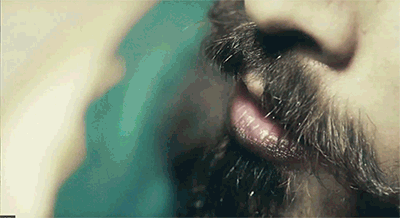










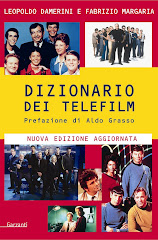.jpg)












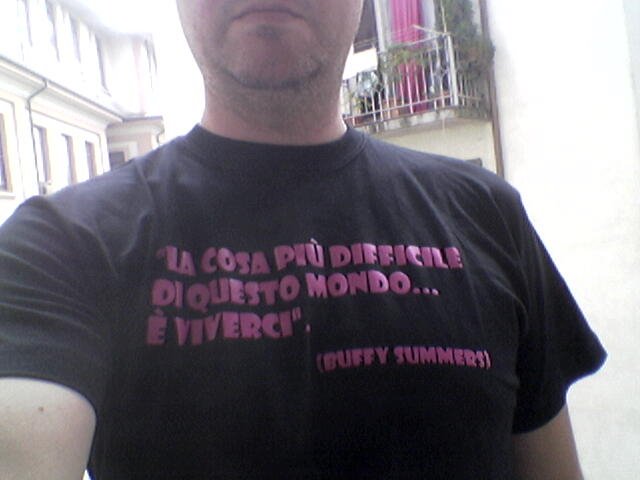
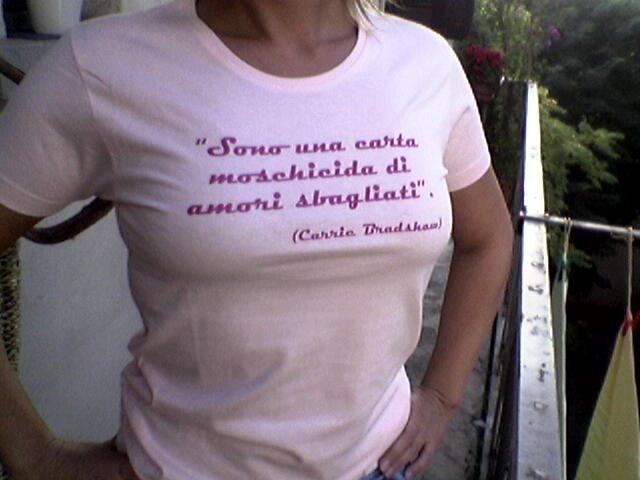


1 commento:
tra 2 anni tornerà nell'anonimato
Posta un commento